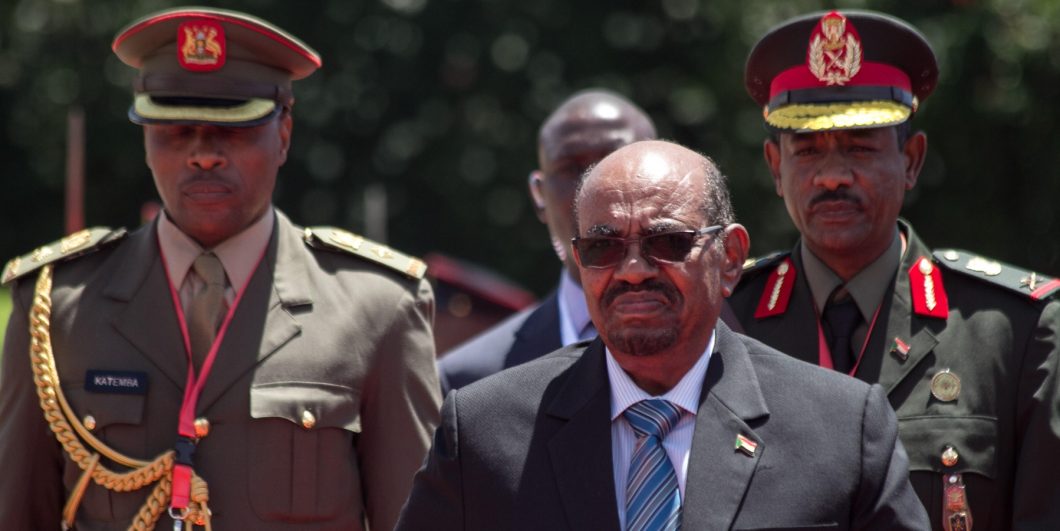The Looming Tower offers a smart look into the pursuit of bin Laden, but the show misses a chance to show the origins of Islamist terror.
Reasons for Caution About Sudan
With the removal of Sudanese President Omar al-Bashir from power on April 11—after months of popular protests and demonstrations—I wish I could say I’m cautiously optimistic about Sudan’s future. I’m more cautiously pessimistic than optimistic, however, for four reasons.
First, while I do not want to engage in conspiracy theorizing, it is actually not yet entirely clear that al-Bashir is really out of power. While the military ostensibly removed al-Bashir from office, no one knows where he is being held. In other nations, that might bespeak dire consequences for the former leader. But we need to recall the pretend imprisonment by al-Bashir of another leader who actually was in power during his ostensible imprisonment.
Hassan al-Turabi was arrested and imprisoned along with other civilian leaders after the 1989 coup that first brought al-Bashir to power. While ostensibly holding al-Turabi in prison, the regime began implementing al-Turabi’s vision for Islamicizing Sudan.
Al-Turabi’s imprisonment was entirely for show; the coup leaders were in continuing contact with al-Turabi during the entire period of his imprisonment. On his release a few months later, al-Turabi continued to exercise vast authority in the Sudanese government as the head of the National Islamic Front.
Given the continuity of military command in Sudan, and al-Bashir’s close contact with the military throughout his presidency, it is not yet clear that al-Bashir’s “removal” from office was not in fact engineered by al-Bashir, or at least done with his assent, in what might turn out merely to be a show in the hopes al-Bashir’s nominal removal would mollify the protestors.
Secondly, even if the military forcibly removed al-Bashir from power against his will, promises by the military for a transition to democratic rule within two years ring hollow. More likely would be for the military to use the token sacrifice of al-Bashir to tamp down the protests and demonstrations, particularly in Khartoum.
While the protests are extensive, it is unclear the pivotal players in Sudan have yet changed as a result of those protests. Beyond the military itself, since independence in 1956, Sudan’s “riverine” elite have controlled the government, using its power as a tool of extraction of wealth from the periphery to the center. (In doing so, the government continued a practice begun by the British, if not begun earlier.) It implemented a brutal system of exploitative federalism. The secession of South Sudan and the terrible conflict in Darfur are only the most obvious reactions to the exploitative relationship of Khartoum to the rest of the country.
Less well known, however, have been equally brutal repression in Sudan’s Blue Nile and South Kordofan regions. This tradition of exploitative federalism, and of setting the peripheral regions off against one another in mutually weakening conflict, needs to be ended for any hope of real peace, let alone development, in Sudan. Simply replacing one set of riverine elites with a new set who nonetheless continue the exploitative relationship between the center and the periphery only changes the names but not the country’s underlying pathology.
The question of the moment is the attitude of the riverine elite toward the military. Is the sacrifice of al-Bashir (if that’s what in fact happened) sufficient to mollify elite opposition to the current regime? Or will elites make broader common cause with protesters—disproportionately women and young people—to try to pressure the military into making real change?
Relatedly, the third challenge to real change in Sudan is the traditional inability of opposition groups to set aside differences and to cooperate among themselves. This has already been seen in the sniping between protesting groups trying to form a united front.
This problem is not new. Disputes between leaders of the former opposition groups in South Sudan have made that new nation—one incredibly rich in natural resources—an international basket case almost as soon as it was birthed. So, too, the inability of opposition groups in Darfur to cooperate and form a united front led both to ineffective resistance during the time of the conflict itself, and contributed to lengthening the conflict because of the inability to agree on terms to end the conflict.
An intentional strategy of the center against the peripheries was to repress on the cheap: to use selective incentives offered to only one opposition group or only a few to induce an alliance with the central regime, and set the opposition groups in opposition to each other. In doing so, the opposition groups would dissipate their resources in conflict with each other, allowing the center to continue to husband its resources for the future.
Finally, decades of brutal repression by the al-Bashir regime has devastated civil society in Sudan. While I would wish no one to live under the thumb of the Sudanese military, it is unclear Sudan’s civil society has even the minimal health required to sustain democratic government in the period in which the protesters demand, and to which the military has nominally committed. The risk, however, is more than nominal. The risk is that centrifugal political forces will replicate in Sudan what has happened in Somalia with the country breaking into a multitude of local power centers. One can certainly hope for the best in Sudan. But the liabilities the country faces in transitioning to peace, let alone to democratic governance, remain sizable.


